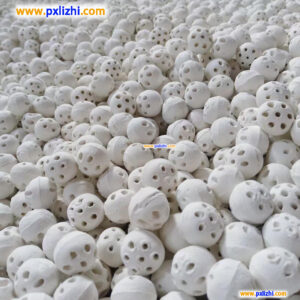
Inert Ceramic Balls: The Ultimate Guide to Applications and Benefits
Inert ceramic balls are specialized spherical fillers engineered for industrial processes requiring chemical inertness, thermal stability, and mechanical strength. These high-performance media play a critical role in optimizing chemical reactors, distillation columns, and protective bed support systems across multiple industries.
Key Functions and Industrial Applications
These versatile spheres serve as tower packing materials, catalyst bed supports, and distribution enhancers in petrochemical plants. Their primary function includes preventing catalyst clogging, improving fluid dynamics, and protecting sensitive equipment from corrosion and thermal stress. Common implementations span hydrocarbon processing, environmental protection systems, and gas treatment units.
Thermal Stability and Chemical Resistance
Manufactured from high-purity alumina silicate compounds, inert ceramic balls maintain structural integrity in extreme temperatures up to 1800°F. Their non-reactive nature makes them ideal for acidic or alkaline environments where metal components would degrade rapidly.
Frequently Asked Questions
What sizes are available?
Standard diameters range from 3mm to 50mm, with custom sizes available for specialized applications.
How do they compare to metal balls?
Ceramic versions offer superior corrosion resistance and maintain performance in high-temperature applications where metals would fail.
Can they be regenerated?
Yes, most types withstand multiple regeneration cycles through calcination or chemical cleaning processes.
Discover premium-grade inert ceramic ball solutions engineered for your specific operational requirements. Our technical specialists provide personalized material selection guidance to maximize your process efficiency.
Ready to optimize your industrial processes? Contact our engineering team today for free sample testing and customized technical recommendations tailored to your application needs.
